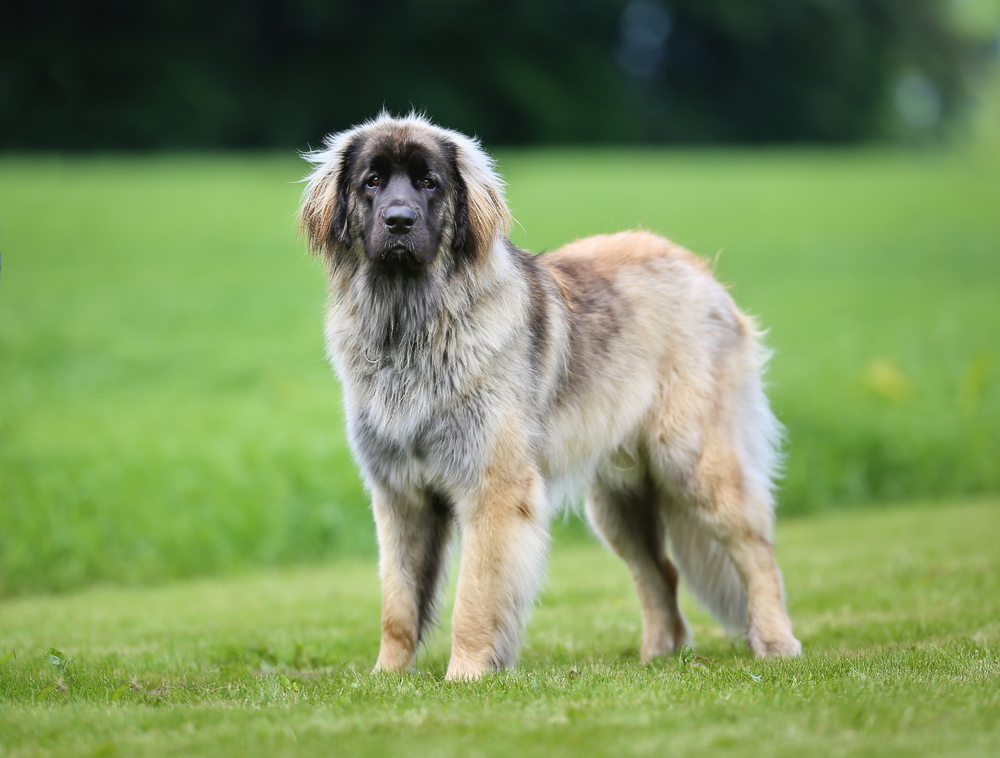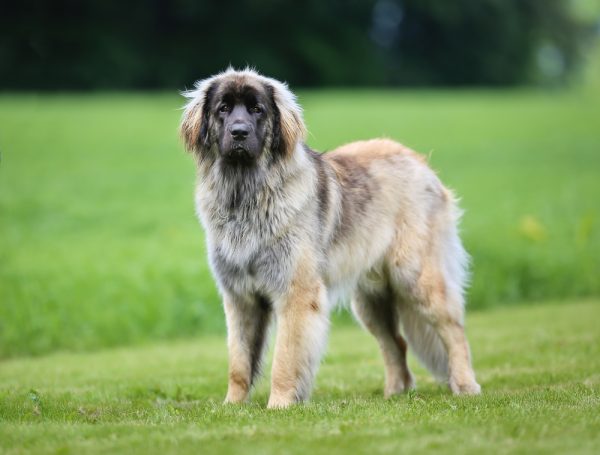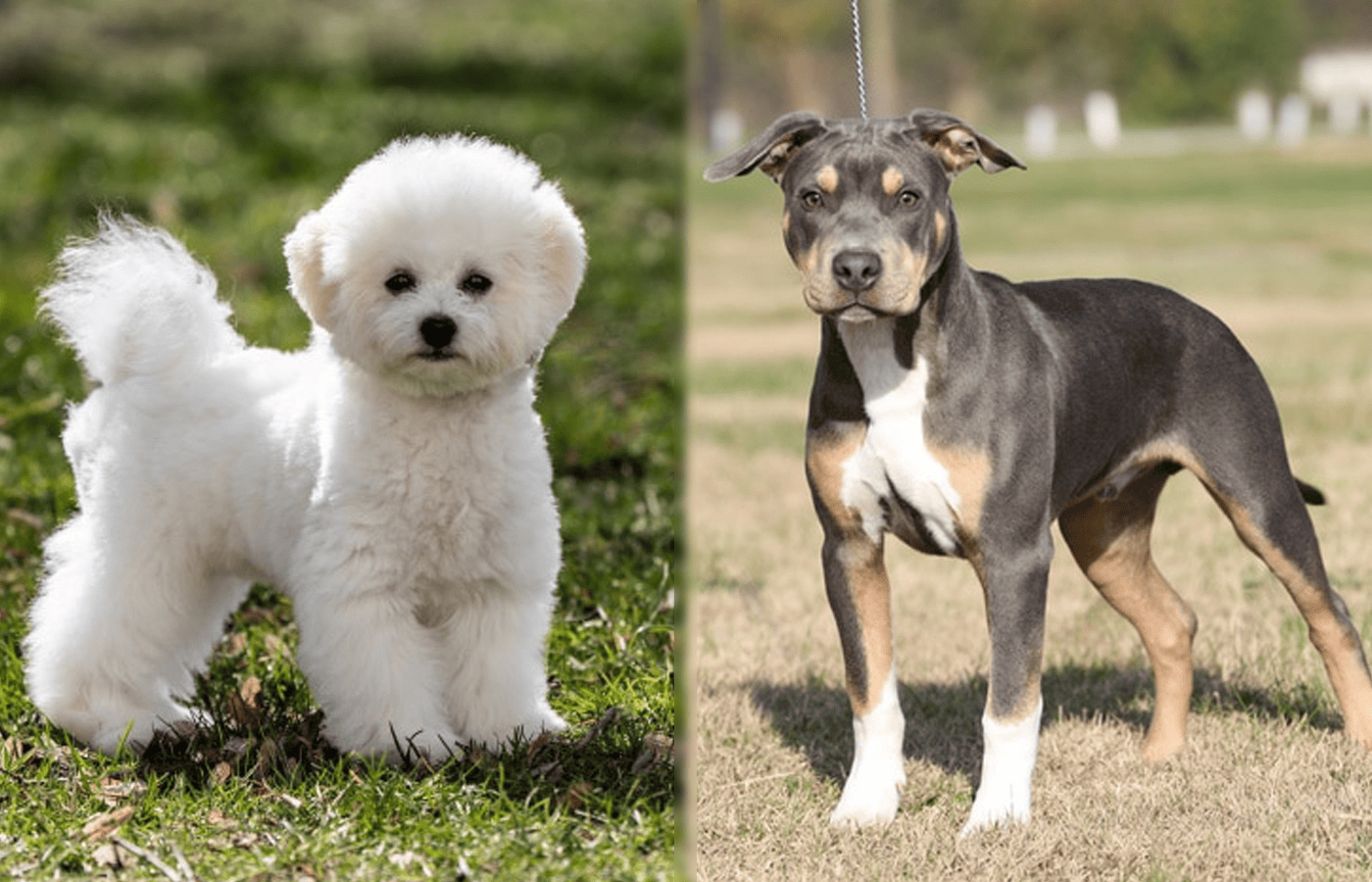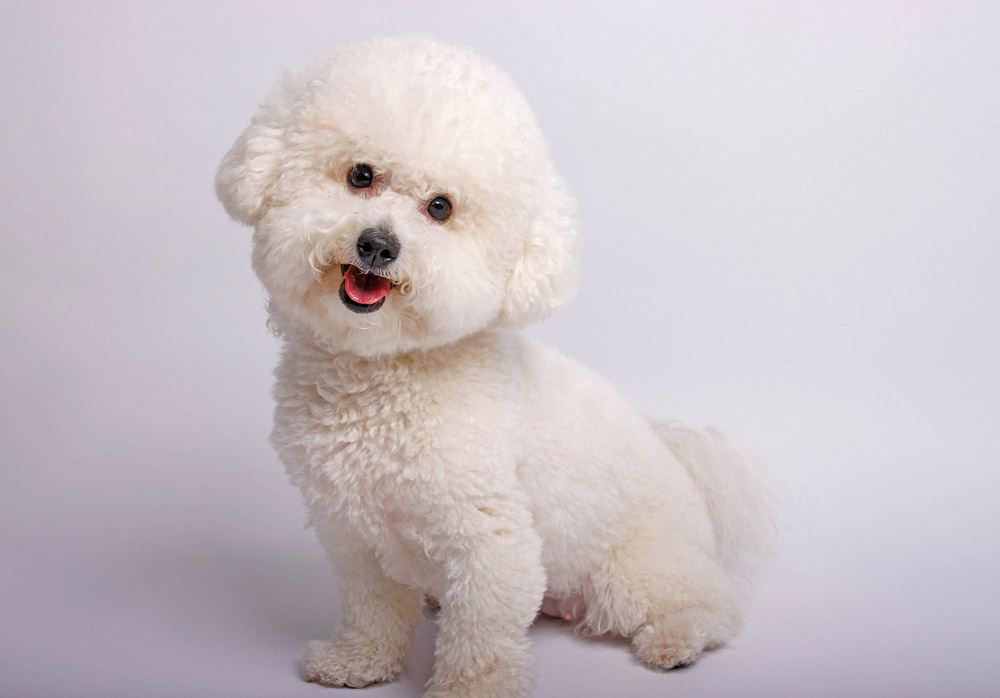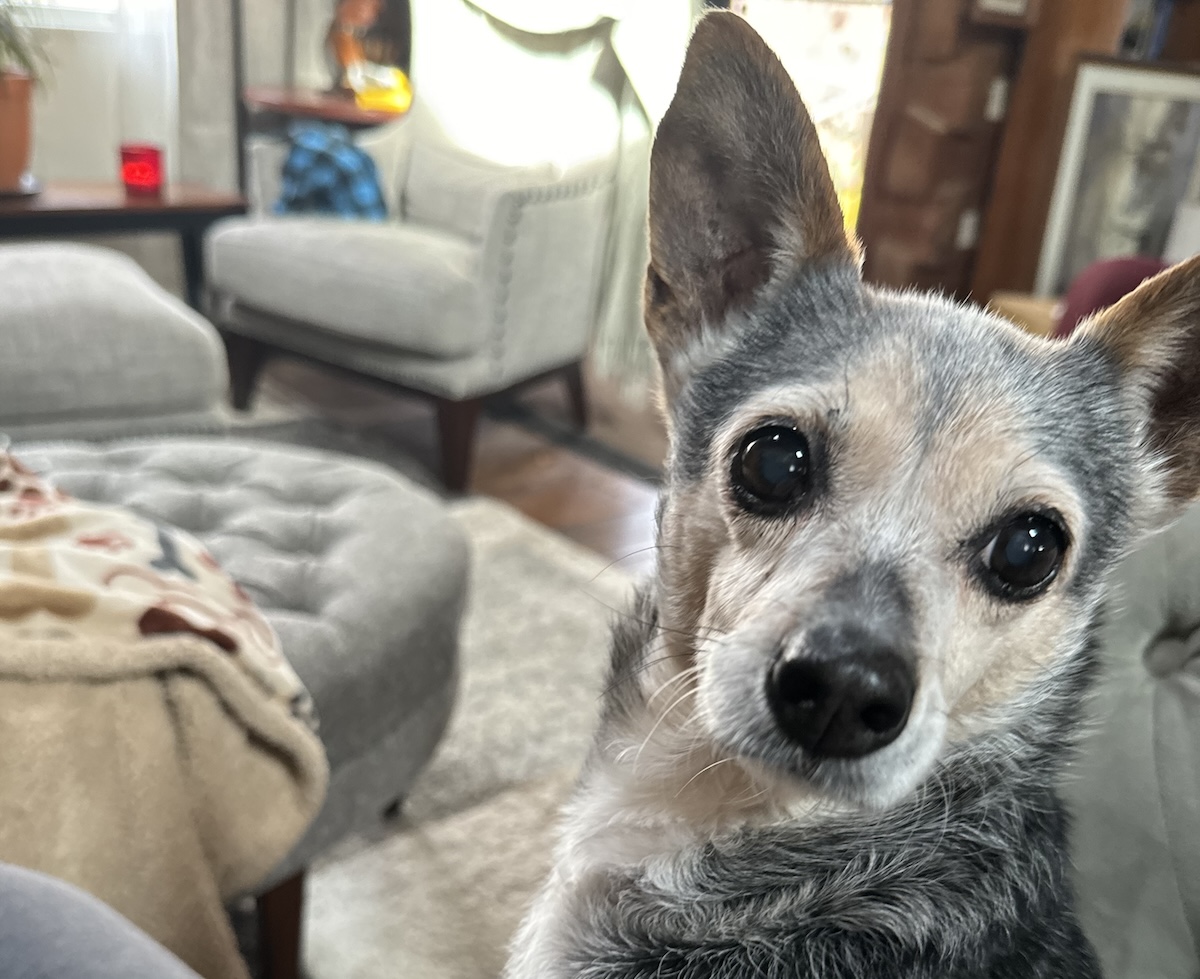Click Below to Skip Ahead
A massive and regal-looking dog breed, the Leonberger might be right up your alley if you’re looking to bring a new pet into your home. They’re massive dogs resembling a lion in many ways, but their personality is loving and sweet, making them the best of both worlds.
But while Leonbergers have plenty of great traits, there are also quite a few that should make you think twice before getting one.
Breed Overview
Height:
25.5 – 31.5 inches
Weight:
90 – 170 pounds
Lifespan:
8 – 9 years
Colors:
Yellow, red, reddish brown, or sandy
Suitable for:
Active families, first-time dog owners, and those who want a giant dog
Temperament:
Loyal, intelligent, easy to train, friendly, and driven
With a rich history that stretches back to Germany, a period where the dog almost went extinct, and a size and appearance no other dog breed can match, it’s no wonder that so many people are in awe of the Leonberger. This is especially true when you look at how loyal and loving these pups are, even if they need quite a bit of space to roam. However, there are a lot of fascinating facts about them, and if you’re considering bringing one into your home, you need to know all the ins and outs before you commit.
Leonberger Characteristics
Leonberger Puppies
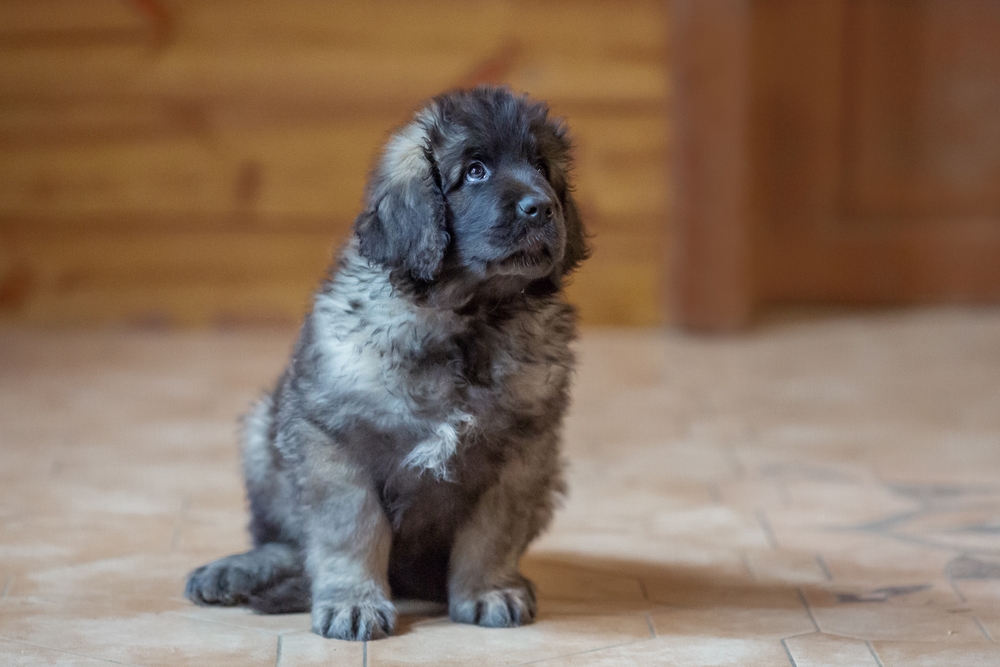
No matter how you look at it, the Leonberger isn’t the most common dog breed in the world. They’re relatively rare since a massive dip in popularity following World War II, and it’s estimated that there are only 30,000 Leonbergers in the world today.1
This means that if you are looking to adopt a Leonberger, you’ll need to do a little more homework to track down a reputable breeder, and you may need to travel to get one.
With that in mind it’s important to realize that you still shouldn’t skimp on breeder standards, so inspect the facility, reach out to references, and get health guarantees, even if it means going through all the hard work of trying to track down another breeder.
Leonbergers should also come with some form of formal recognition from a group like the American Kennel Club (AKC). Finally, ensure the parents have a clean bill of health; otherwise, you could wind up paying far more on the overall vet bills for your pup in the future.
Leonberger Origin & History
Leonberger is a city in Germany, and as you might suspect, this is where the Leonberger dog breed originated. The first Leonberger dog appeared in the city in 1846. The pup’s original purpose was to possess a lion-like appearance that matched the appearance on the crest of Leonberg. While it’s not an exact match, it’s close.
The breed almost went extinct following World War I, and the breed’s popularity took a hit again during World War II. But through breeders’ determination to keep the breed going, it’s started to gain a little in popularity, even if they’re still not the most common or most popular dog breed.
Temperament & Intelligence of the Leonberger 🧠
You won’t find a more loyal, loving, and intelligent dog than the Leonberger. All they want is all the attention and love you’re willing to give them, and with an unrivaled eagerness to please their owners, there isn’t much you can’t train them to do.
And while they’re among the largest dogs in the world, they still are lap dogs at heart, enjoying a good cuddle as often as you can give it to them. Of course, their larger size means you might not want them on your lap, so it’ll be up to you to show them a different way to cuddle and still get your undivided attention.
Are These Dogs Good for Families? 🏡
The Leonberger is a phenomenal dog breed for families. They’re large enough dogs to where you don’t need to worry about small children hurting them, yet they’re aware of their larger size, so they don’t accidentally trample kids.
They’re also extremely loving and will take attention from anyone willing to give it to them, which is a huge perk when you have lots of people in your home.
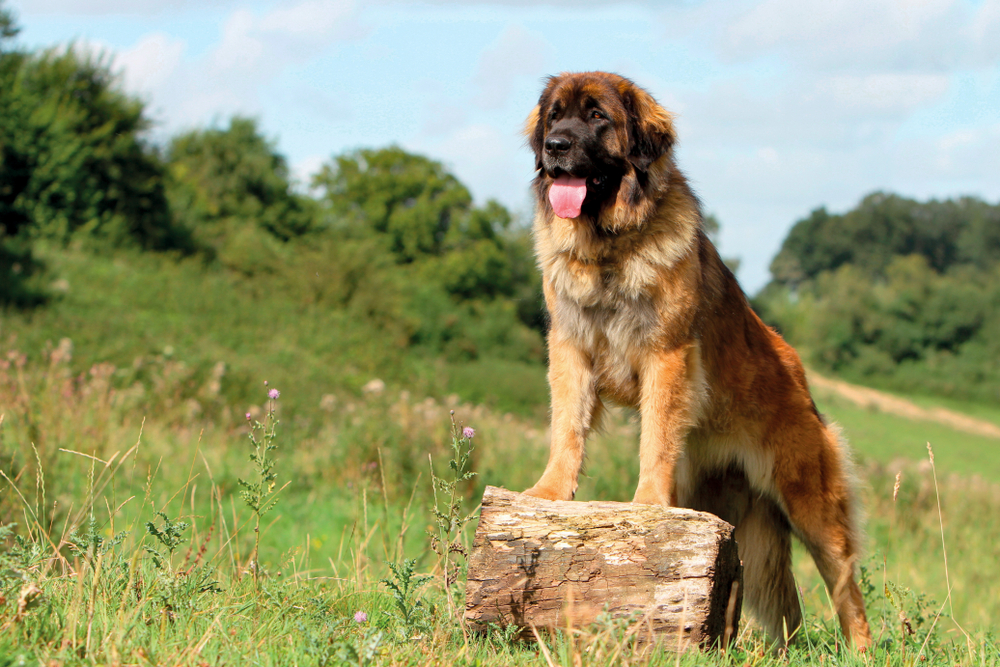
Does This Breed Get Along With Other Pets? 🐶 😽
While the Leonberger generally gets along great with kids and other people, that’s not always the case with other pets, especially other dogs. They’ll typically get along fine with other dogs in their family, but they can sometimes get aggressive with dogs they don’t know.
We highly recommend socializing with them early on to help with this, and always complete a supervised meet and greet when introducing them to other animals.
Things to Know When Owning a Leonberger:
Food & Diet Requirements 🦴
Big dogs have big appetites, and the Leonberger is certainly no exception. Even the smallest Leonbergers need about 5 cups of high-quality kibble daily, while larger Leonbergers can need up to 8 cups of kibble daily, but this largely depends on how active they are.
No matter how you look at it, that’s a lot of food! If you’re thinking about feeding them wet food, you might want to think again because they’ll need quite a few of these per day, and wet food tends to be more expensive.
There’s nothing wrong with feeding them a kibble diet, just ensure it’s nutritionally complete and high-quality; otherwise, you could be inviting health problems down the road.
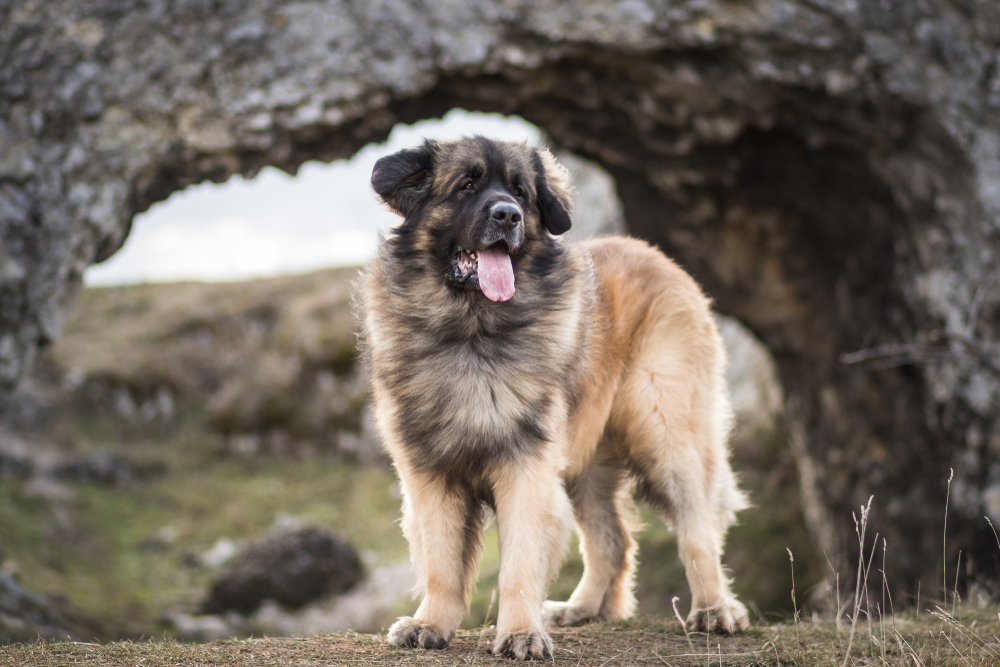
Exercise 🐕
A Leonberger is a massive dog breed, and because of their size, they really don’t need a ton of exercise. Often one or two walks that last between 15 and 20 minutes each should be more than enough.
However, the tradeoff is that because of their massive size, they need a large yard to run around and play in. You won’t be able to meet their exercise needs inside your home. We don’t recommend getting a Leonberger unless you have a large outdoor space where they can run around and play throughout the day.
Training 🦮
Overall, the Leonberger is extremely loving and eager to please, but because of their larger size, it’s important to train them early on and keep up with their training throughout their life.
Consistency is critical, so aim for a daily training session that lasts between 10 and 15 minutes. Stick solely with positive reinforcement and bring some of their favorite treats to really lock in their attention.
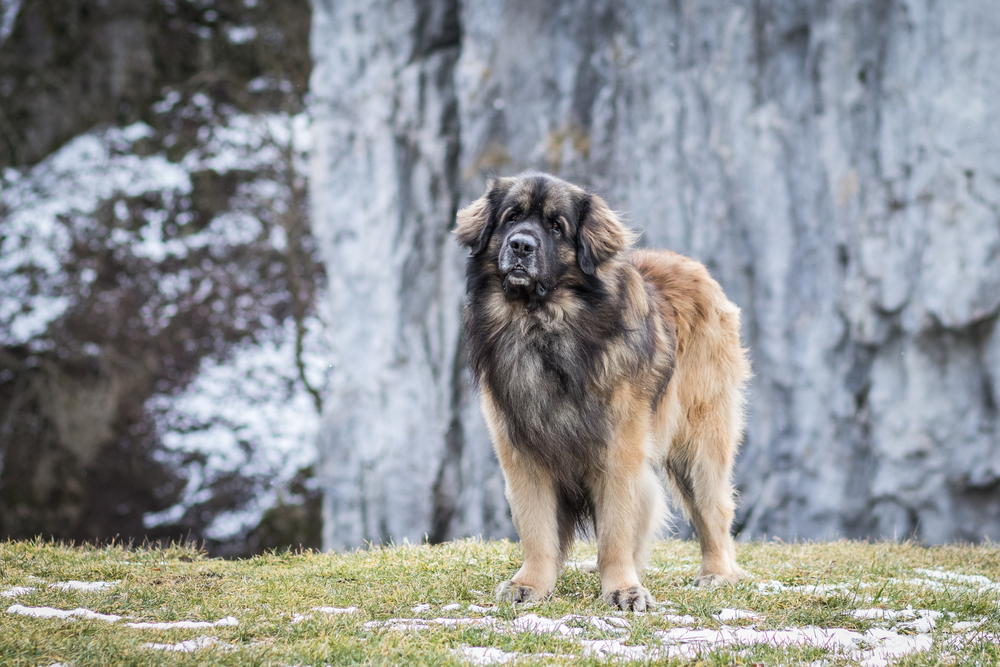
Grooming ✂️
We don’t care how much you brush out your Leonberger, the amount of hair they shed will surprise you. They’re constantly growing and shedding hair. You must brush them every day, but even with this, you’ll find hair all over the place.
In addition to the constant brushing and shedding that comes with a Leonberger, you’ll need to brush their teeth at least once a day to keep up with their oral hygiene, as well as keep an eye on their nails so that you can trim them as needed.
Health and Conditions ❤️
While the Leonberger is great in a ton of different ways, one unfortunate drawback to this massive pup is the litany of health conditions they often come with. Compounding the issue is that it usually isn’t minor conditions.
Keeping up with their exercise requirements and visiting the vet can help, but unfortunately, it’s often only a matter of time before they develop a serious condition.
- Arthritis
- Cataracts
- Dental problems
- Gastric dilatation and volvulus (GDV)
- Hip dysplasia
- Cancer
- Heart disease
Male vs. Female
While there aren’t many personality differences between male and female Leonbergers, one area where they differ quite drastically is their size. Males are often much larger than females.
In fact, males can be as large as 170 pounds, while females can be almost half that size at just 90 pounds. Of course, smaller males can stand at just 110 pounds, so it’s possible to have a smaller male Leonberger. Just know that whether they’re a male or female, the Leonberger is still a massive dog!
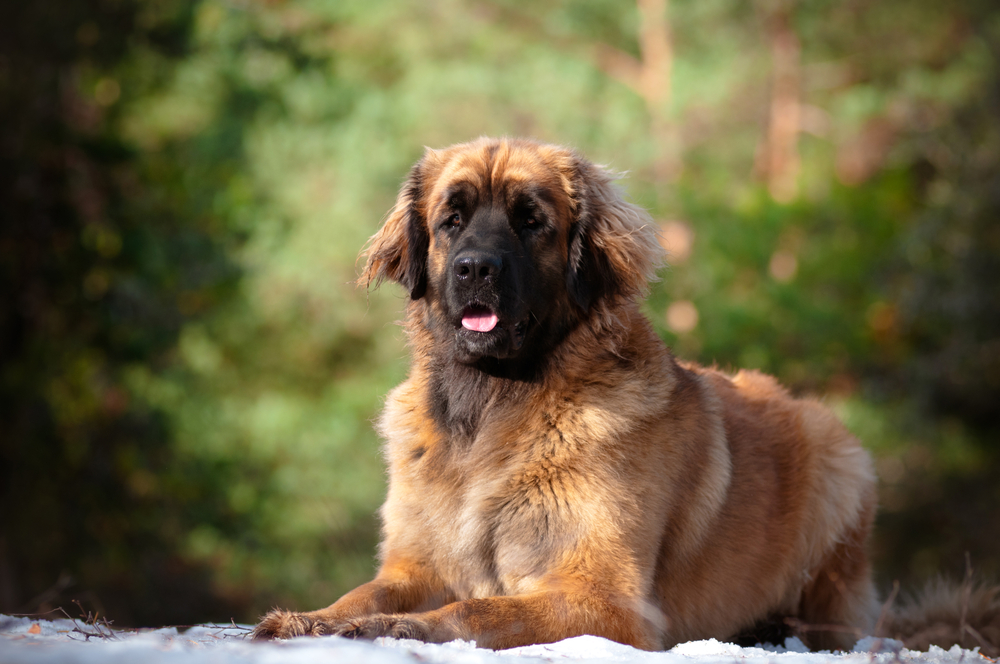
3 Little-Known Facts About the Leonberger
1. They’re Actually “Water Dogs”
One look at a Leonberger’s paws will show you they have webbed feet, which is a tell-tale sign of a dog that loves the water. Webbed feet help them swim, and you’ll be hard-pressed to find a Leonberger who doesn’t love the water.
2. Female Leonbergers Aren’t Always So Massive
While there’s no such thing as a “small” Leonberger, females can be almost half the size of some males. They’ll still weigh close to 100 pounds, but that’s a far cry from the 170 pounds larger Leonbergers weigh.
3. They Love Working
Most modern-day Leonbergers don’t have a job to do, but they love having a task to complete. Whether it’s a job as a watchdog, pulling a cart, or something else entirely, Leonbergers love having a purpose.

Final Thoughts
While the Leonberger is a beautiful and awe-inspiring pooch, we highly recommend thinking it through before bringing one into your home. While they can be easy to care for in so many ways, their massive size means they can also be a bit more work.
It’s a big investment, but with such sweet and loving personalities, we think they’re well worth it.
Featured Image Credit: BIGANDT.COM, Shutterstock

